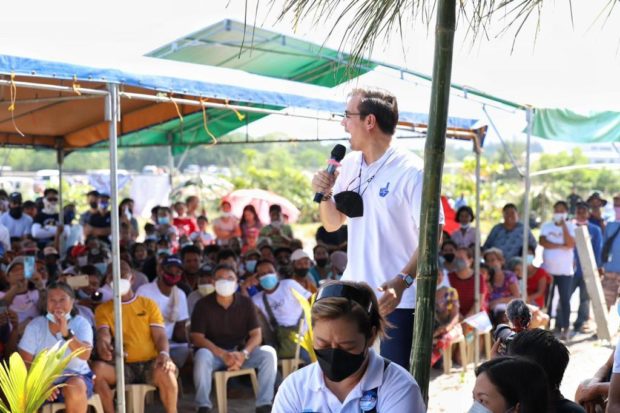Manila City’s top ranking in the 2020 Highly Urbanized Cities under the Cities and Municipalities Competitive Index is a testament of Mayor Isko Moreno Domagoso’s leadership and what he can deliver to all Filipinos if given a chance to lead the Philippines in these trying times.
The City of Manila bested 32 other local government units across the country after it garnered an over-all score of 65.9782, as shown in the Cities and Municipalities Competitive Index website of the Department of Trade and Industry (DTI).
The local government of Manila likewise topped in the government efficiency and infrastructure pillars with a score of 20.5491 and 15.0476, respectively.
The Cities and Municipalities Competitive Index is an annual ranking of Philippine cities and municipalities developed by the National Competitiveness Council through the Regional Competitiveness Committees (RCCs) with the assistance of the United States Agency for International Development.
The rankings are based on the sum of their scores on 4 Pillars: Economic Dynamism, Government Efficiency, Infrastructure, and Resiliency.
Under the leadership of Moreno, Manila ranked 1st in Government Efficiency and Infrastructure pillars and a close 3rd in Resiliency and Economic Dynamism.
In Government Efficiency, Manila ranked first in 7 out of 10 indicators, which include business registration efficiency, capacity of health services, capacity of school services, peace and order and social protection, among others.
In Infrastructure, Manila led in availability of basic utilities, education, local government unit investment and financial technology capacity. It is second in health.
Topping the 2020 rankings of Highly Urbanized Cities is no small feat since it was achieved at the height of the pandemic, when the national government imposed a crippling national lockdown to supposedly prevent the spread of Covid-19, and Filipinos facing uncertainty.
With foresight of things to come, Moreno’s government set about to build its own “medicine cabinet” of effective responses to the pandemic – from stockpiling essential equipment and drugs like Remdesivir and Tocilizumab, to building the 344-bed Manila Covid-19 Field Hospital at the Quirino Grandstand in just 52 days.
With prudent and efficient management of the city’s limited resources, Moreno’s government was also able to sustain a 6-month long distribution of “ayuda” to the poor, the unemployed, the marginalized and senior citizens.
When distance learning was implemented last year, the city government distributed 110,000 gadgets equipped with SIM cards and 11,000 laptops with pocket Wi-Fi devices to public school students and teachers.
More importantly, the pandemic did not stop Moreno from implementing the programs that he promised to Manileños when he ran for the mayorship in 2019 – to bring socio-economic development to the densest city in the world, with nearly 2 million people packed into just over 16 square miles.
“Simula noong mag-Alkalde ako, yung focus, yung North Star of the governance of Manila is always about the people: pagiging maayos, walang kadugyutan, certainty of rules, housing to give back dignity, school, hospitals, parks, open space for the future, clean air, highly urbanized city,” said Moreno.
In a span of two years, Moreno oversaw the construction of public hospitals, public school buildings and vertical housing projects for the poor. The housing projects are all situated in the city’s slum areas to accommodate the urban poor. Construction of modernized public school buildings are also in full swing.
“Pag sinabi ko pong pabahay, hindi yan drawing, nakatayo na po. Pag sinabi ko pong hospital, hindi yan plano, meron na pong nakatindig dito sa Maynila. Pag sinabi kong suportado ang edukasyon, hindi po yan slogan. Pagsinabi ko pong ease in doing business sa mga nagosyante, hindi po yan promissory note, but something that is up and running in Manila,” Moreno said.
Last October 29, the City of Manila also won three awards during the Digital Governance Awards 2021 (LGUs Best Practices in Information and Communication Technology). The awards include the Covid 19-Testing Center Web-Lab-IS – Best in LGU Empowerment Award (City Level) – 1st Place; City of Manila Connection for Inclusion Award – Best in Customer Empowerment Award (City Level) 1st Place; and the Business Permit Licensing Service (BPLS) – Best in Business Empowerment Award (City Level) 2nd Place.
In June 2021, the City of Manila was named among 50 Finalist Global Champion Cities in the Bloomberg Philanthropies 2021 Global Mayor’s Challenge, the world’s most prestigious competition for urban innovation for cities of 100,000+ population.
Manila’s entry to the competition “Go Manila” seeks to build the first, holistic, digital data infrastructure by any Philippine city, large or small.
Meanwhile, the Competitiveness Bureau of the DTI said in that the rankings were conferred on Dec. 16, 2020 during the 8th Regional Competitiveness Summit during its livestream.
For this year, the bureau said, the 9th Regional Competitiveness Summit will be streamed via the DTI and CMCI Facebook pages open Dec. 7, to recognise the most competitive LGUs and provinces, which pursued competitiveness amid the ongoing pandemic. The results of the 2021 CMCI Ranking will be released on this date.
Bureau Director Lilian G. Salonga lauded Manila City leaders for their continued support and acknowledgment of DTI’s efforts in building local competitiveness in pursuit of a more sustainable national competitiveness.
